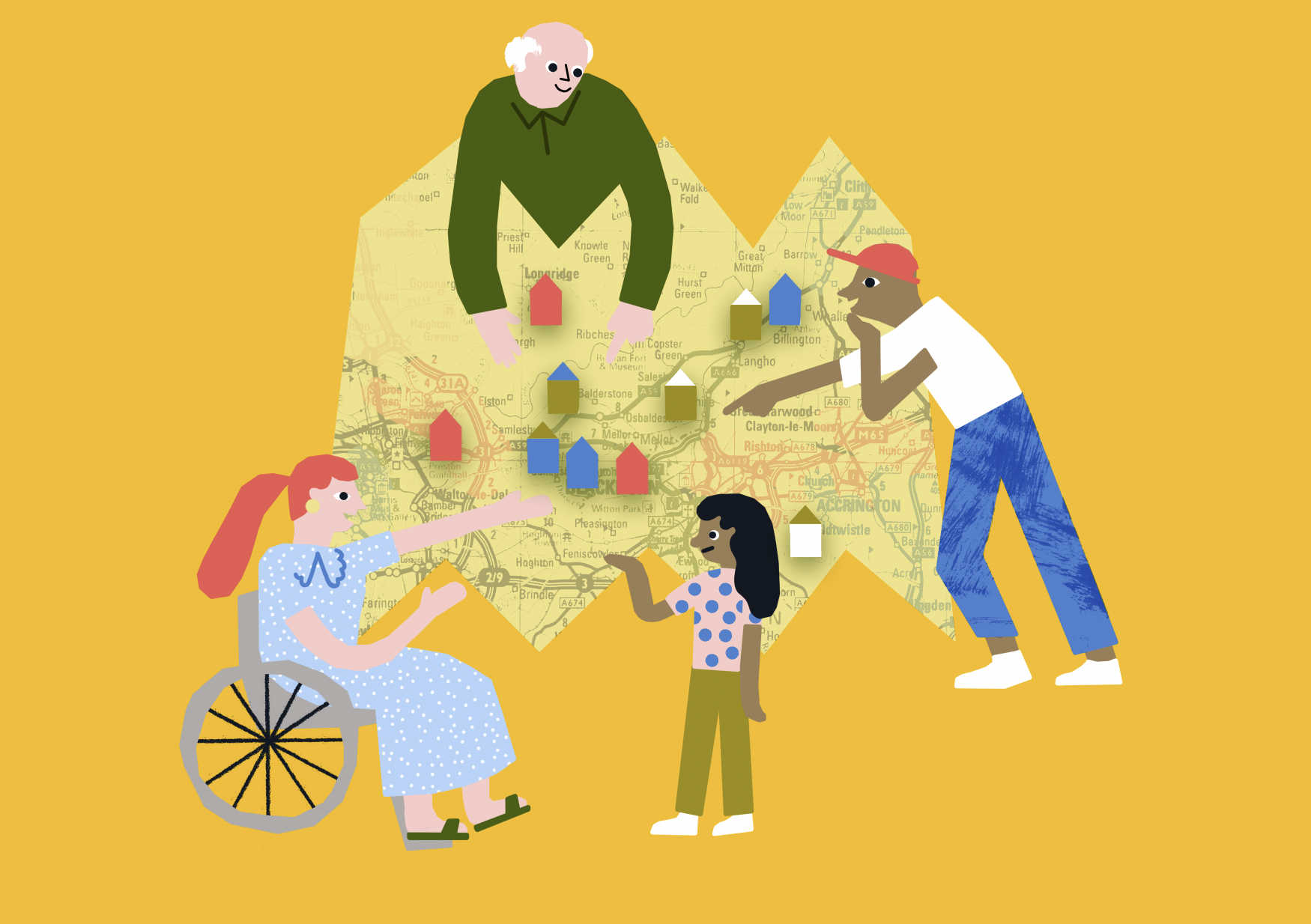Haphazard and half-hearted: community consultation in the UK today
Generally, people have very little agency or effect in impacting applications for planning permission for developments in their neighbourhoods, As trust in the activities of developers reaches an all time low, social networking platforms such as Facebook and Nextdoor are increasingly being used to haphazardly mobilise objections (and more rarely support) for planning projects.
The result? A feeling of disempowerment and alienation towards new developments all over the UK, leading to a range of social and environmental ills, and a wasted opportunity to develop joined-up narratives that encourage public discourse and reflective data gathering. Wouldn’t it be better to allow citizens to understand and share the societal risk and responsibility of new developments, important for the foundation of an equal and progressive civil society?
Community Consultation for Quality of Life
This is the basis of Community Consultation for Quality of Life (CCQOL), a new, map-based project based on findings from Delivering Design Value, a 2020 project undertaken within the UK Collaborative Centre for Housing Evidence that examined the way in which design value is fostered across the housing supply chain.
Today, our aim is to bring together best practice in both digital and face-to-face community consultation across all four nations of the UK, using co-created maps to offer practical ways to improve democratic engagement with our planning system and to make places that can really deliver on social value.
We are working with a number of other universities, the Quality of life foundation, commonplace and Urban Symbiotics to do it.

Consultation or Engagement?
Both the Climate Change Emergency and the recent pandemic have thrown into stark relief the need to make sure that our homes and neighbourhoods are more resilient and inclusive, yet community consultation remains piecemeal and haphazard.
And we’re talking about community consultation here, which is different to the infinitely preferable but just as rare community engagement, typified by a long-term relationship with the people and communities in an area. Consultation, on the other hand, involves shorter terms of discussion, usually focussed on a single key issue or project that has a more limited scope in both timeline and discussion depth.
The focus of the CCQOL project is community consultation, as this needs to be aligned with engagement and to be done so much better.
According to the Royal Town Planning Institute (RTPI), the re-imagining of planning is urgently needed, and the government in Westminster has been undertaking a radical review of the planning process which seems set to expedite planning in England as one means to help get the UK economy back on track. But many are worried about the impact of such changes on housing quality, and the long-term effects on people’s quality of life.
Empowerment and investment for local communities were the focus of the Localism Act 2011, and the report by the Building Better Building Beautiful Commission suggested that communities would be involved in developing design guidance for their areas in future.
But how do we do that?
An overview
In England, communities have the opportunity to make their own Neighbourhood Plan,a notoriously difficult process where small sectors of the community can become disproportionately powerful in setting the agenda for their areas.
Across the UK, currently, communities have the following opportunities to feed into the planning and design process:
- Roughly every five years, the community will be asked to comment on the local development plan. But local input is notoriously low and the process of doing them begs the question: what happens in the meantime?
- In the instance of a planning application being submitted, notices in newspapers and on lamp-posts inform the public of their statutory opportunity (around 4 weeks) to support or object to a proposed project. This is problematic as local newspapers are not well read, and notifications can be patchy, non-existent or lost in the morass of information in our streets;
- When they occur, formal Public Consultation events such as a public exhibition can be poorly attended,adversarial and are not generally set up to advance co-creation. Councillors, depending on their expertise and level of engagement, can play an important role in alerting the public to planning applications in their area and in translating drawings and proposals to their constituents. Generally, though, there is a high level of non-engagement.
An improved understanding of how best to elicit information on what people want in an inclusive way will be a central contribution of CCQOL. Its outcomes will be of particular interest to policy, industry and community – hence the participation on an advisory panel of the Ministry of Housing Communities & Local Government (MHCLG), the Connected Places Catapult, the British Property Federation and a variety of community organisations.
The project starts with a literature review and a series of events that will discuss the future of community consultation. The project itself will run until September 2023. We are currently looking for sites to use the methodology we are creating, so if you are interested in getting involved then get in touch on mail@qolf.org.